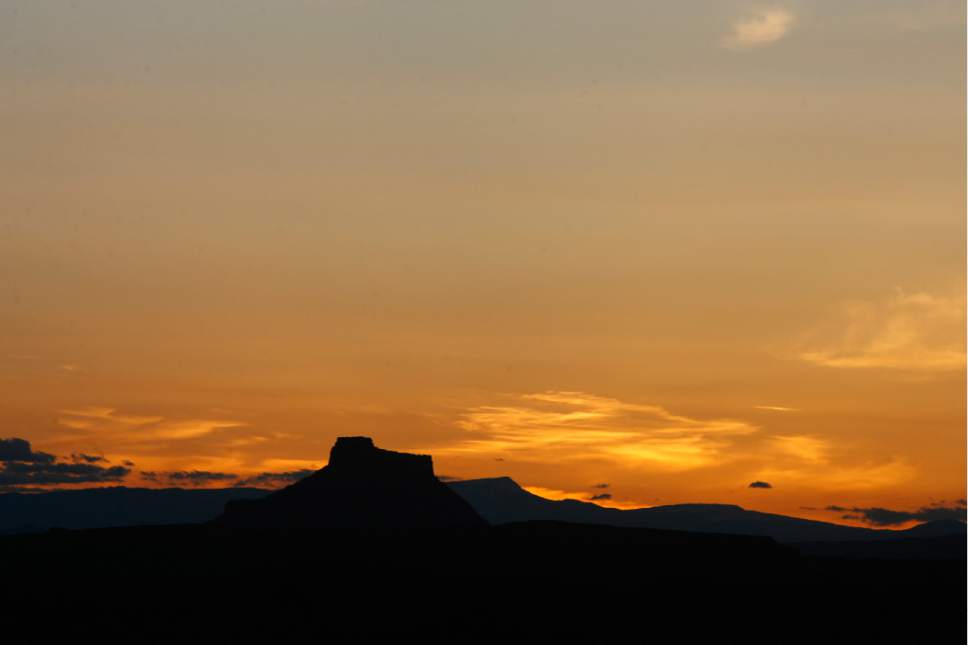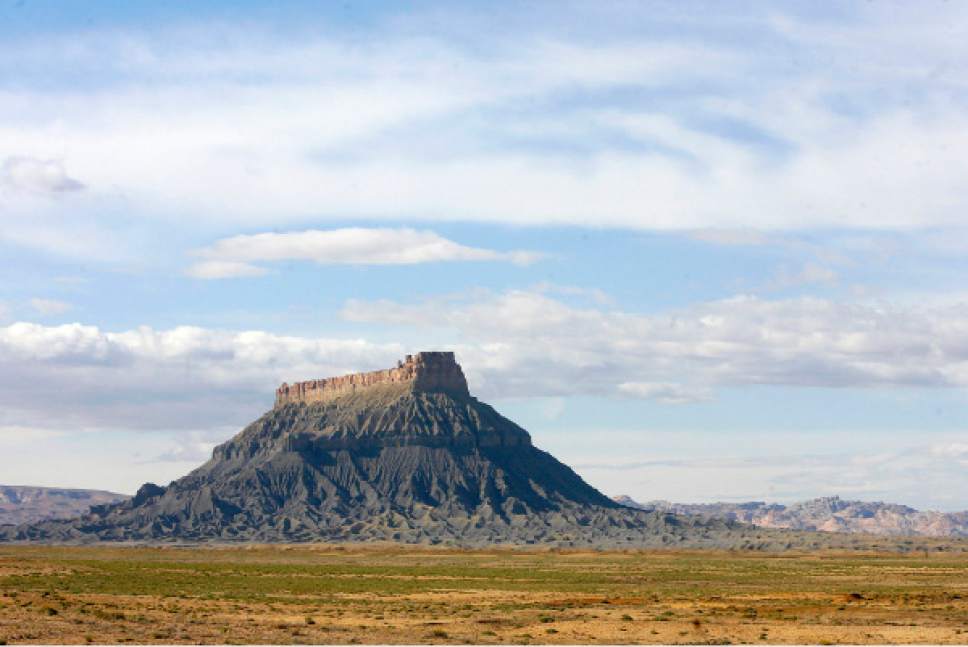This is an archived article that was published on sltrib.com in 2017, and information in the article may be outdated. It is provided only for personal research purposes and may not be reprinted.
State officials and several Utah counties are pushing to scuttle a proposed settlement between the Bureau of Land Management and environmentalists over controversial travel routes through BLM lands, saying the agreement illegally infringes on counties' claims to 3,000 disputed roads.
In January, the BLM announced an agreement with the Southern Utah Wilderness Alliance (SUWA) and its allies to re-evaluate many travel routes authorized in resource management plans that had been revised in 2008 for five of its field offices: Vernal, Price, Richfield, Moab and Kanab.
The settlement would let stand a disputed travel plan for a sixth field office, Monticello, which now covers the new Bears Ears National Monument and will be subject to future monument planning.
The court deal sets an eight-year time frame for evaluating the routes while providing new criteria for deciding whether they should remain open to motorized use or modified to minimize impacts — criteria that includes whether they run through lands with wilderness characteristics.
"We can't agree with that," said Assistant Attorney General Tony Rampton, the state's point person on public-lands litigation.
The state says the program would be imposed on the counties against their will and could jeopardize other historic road claims. The counties say re-examining the routes would be detrimental to their residents who depend on access to public lands for their livelihoods and recreation.
"The settlement creates a new regime that is designed to limit access and close travel routes," the Utah attorney general's office wrote in a brief filed last month, asking U.S. District Judge Dale Kimball to reject the settlement.
"Requiring the BLM to enhance wilderness characteristics, for example, can only be accomplished by closing roads," the state wrote in its brief. "The proposed settlement violates the law and public policy, is unfair and unreasonable, and is opposed by the elected representatives of the people who it will most affect."
The settlement also comes after eight years of legal wrangling over the resource-management plans, which critics said locked in pro-drilling and pro-motorized-vehicle policies as President George W. Bush was leaving office.
"We think this is a reasonable settlement, and the best path forward is to not continue litigating," said Robin Cooley, a lawyer with Earthjustice, a nonprofit group representing environmental interests. "The counties have this idea that BLM can't manage lands to protect their wilderness characteristics or even consider them in making decisions. That is just not the law."
The state and counties' key concern is that the settlement would undermine road claims being made under an 151-year old law known as RS2477, which are currently pending in federal court — although the proposed settlement explicitly says these claims would not be affected.
"They will be closing roads that are RS2477 roads," Rampton asserted.
In its initial lawsuit, SUWA argued that the BLM heavily relied on counties' road claims to decide where to authorize routes without taking measures to safeguard various natural and cultural values. In some cases, agency staffers could not even find actual routes on the ground, according to SUWA legal director Steve Bloch.
As part of the settlement, the SUWA-led coalition also agreed to drop challenges to oil and gas leases sold in 2014, covering 70,000 acres, mostly in the Uinta Basin. The federal government agreed to reimburse $400,000 of the groups' legal costs.
The agreement comes three years after Judge Kimball concluded the Richfield resource-management plan failed to document archaeological sites that could be harmed by motorized use. While upholding much of that plan, the judge ordered the BLM to conduct cultural surveys on hundreds of miles of routes, a gargantuan task to be done over three years. An appeal is pending before the 10th Circuit Court of Appeals.
The new agreement would vacate that earlier ruling and require the 10th Circuit to dismiss that appeal.
Meanwhile, a resolution awaiting a vote in the Utah Senate claims the BLM's 2008 travel plans cut motorized access through affected lands by half. HRC23 calls for a "no net loss" policy whereby the BLM would replace every route closed to motorized use with another offering "equivalent opportunities."
Utah filed its opposition on behalf of Carbon, Daggett, Duchesne, Emery, Grand and Uintah counties. Kane and San Juan counties filed a separate brief, also asking Kimball to reject the settlement because it "creates a process designed to close even more roads without considering the effect on the counties' valid existing rights and general transportation plans," the counties' outside counsel wrote.
Joining the settlement were the motorized-access groups BlueRibbon Coalition, Colorado Off-Highway Vehicle Coalition and Trails Preservation Alliance.
Other intervenor-defendants, which included four energy companies and the Utah School and Institutional Trust Lands Administration, did not sign the agreement, but have signaled that they would not oppose it.
The groups teamed with SUWA are Sierra Club, the National Parks Conservation Association, Grand Canyon Trust, The Wilderness Society, Natural Resources Defense Council, Utah Rivers Council, Great Old Broads for Wilderness, the National Trust for Historic Preservation and Rocky Mountain Wild.
Brian Maffly covers public lands for The Salt Lake Tribune. Maffly can be reached at bmaffly@sltrib.com or 801-257-8713.
Twitter: @brianmaffly





